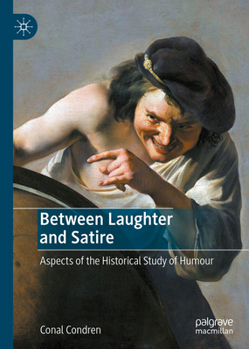Between Laughter and Satire: Aspects of the Historical Study of Humour
This book explores closely related aspects of the historical study of humour. It challenges much that has been taken for granted in a field of study for which history has been marginal. It disputes the conventional genealogical view that humour theory dates from antiquity and outlines an alternative conceptual history. It critically examines the nostrum that humour is universal. It then explores the methodological difficulties in treating both...
Format:Hardcover
Language:English
ISBN:3031217381
ISBN13:9783031217388
Release Date:March 2023
Publisher:Palgrave MacMillan
Length:238 Pages
Weight:0.99 lbs.
Dimensions:0.6" x 5.8" x 8.3"
Customer Reviews
0 rating





